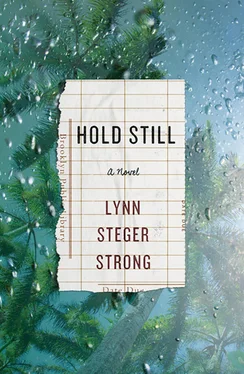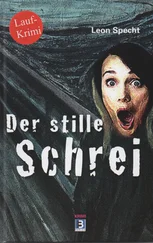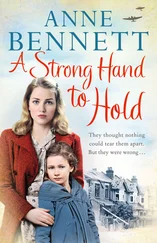“I’m not sure he even knows how to heat the breast milk.” Her chin drops to her chest.
Maya laughs. “He’ll figure it out.”
“The problems of the privileged, huh?” Alana says.
Maya smiles, doesn’t answer.
“I just left,” Alana says again.
“It’s rough,” Maya says. “At first, especially. It’s really rough.”
Alana pulls her tea bag from the water and wraps the string around it, wringing it, then placing it carefully beside her mug.
“Bryant traveled the first couple weeks we had her,” says Alana. “I mean, he was there for the delivery and everything, and then for a few days after, but then he had some conference. And he just went. He got all weird about how little money he makes. I mean, we’re fine, you know? He’d never cared before, but he’s a not very widely read writer with an associate professorship. He’s been in the same rent-controlled apartment for thirty years.”
She has patches of red beneath her eyes; they’re parched and swollen.
“So, all of a sudden, he’s completely freaked out that he’s not rich. And he just leaves me there to figure out how to keep this kid alive.”
She flicks the tag at the top of the tea bag’s string until it rips, holding the now-split halves between her fingers.
“I remember thinking I’d made a mistake maybe.”
Maya holds her coffee with both hands. She blows lightly into her cup so that the steam rises up and she breathes in. She nods and hopes Alana sees.
“I mean. .” Alana grabs her hair again; her hands fall back to her mug. “I’m sorry to do this to you,” she says.
Maya shakes her head. She wants to tell her how grateful she is, to feel like she might help.
“I just stared at her and thought, people make mistakes, you know?” Her thumbs line the edge of the table; hands, worn raw-rubbed cuticles on every finger, reach again for the mug. “I’m a capable, functional human. There has to be a way out of all of this. I thought maybe I was doing it wrong or something, that it couldn’t be as hard as it felt those first few weeks.”
Maya shakes her head. She has known well this need to leave, but it was tempered, most of the time, by the slightly more immediate need to stay.
“I don’t know anyone who has kids.” She looks again into her tea; her nose is long and a little crooked in the middle, almost bumps against her mug. “I’m twenty-eight. That’s old for where I’m from, but here I’m like a child bride. My friends feel too young to get married, much less have kids.” Her eyes are big and full, still splotched with red.
“But he ’ s old , you know? It felt so urgent when we met, to make our lives right then.” She shakes her head. “It felt like it was this inevitable union. It felt like. .” She stops. She looks past Maya to the door. “I’m supposed to be a fucking writer,” she says.
Outside, people who all look like children walk past the large windows fogged at the edges, lit up by headlights and the overhangs and night-lit signs of bars and convenience stores, the antique shop next door. The kids are pierced in unexpected places; some wear heels and clothes not warm enough for the cold. They laugh in packs, walking quickly, bumping into one another, looping elbows, clutching hands.
“You know, I used to pity her,” Alana says. “Caitlin.” She stops.
“She was always so awkward, the way she used to follow Charles like some lost pup.”
Maya has an image of Caitlin, cowed and crying in her office, then of Charles, his hand along her back.
“And now. .” Alana says.
“Now. .” Maya says. She looks past Alana; CUSTOMERS ONLY, reads a sign hanging from the knob of the bathroom door. “She has a book.”
“And I have this person,” Alana says. “I’m in charge of a person .” She raises her hands, up out of her hair and in the air a moment, like she’s not sure where she might put them next. “How the fuck did I do that?”
Maya laughs; so does Alana. She reaches for, then briefly holds Alana’s hand.
“It gets better,” she says. She knows this is inadequate. She wants to give her more.
Maya left once too, like this, much worse than this, she’d gotten on a plane. And not just for a day. She’d left for weeks. She’d just packed her bags and booked a flight. The kids were older. El must have been four, Ben two. Stephen left all the time, for conferences, for meetings, to see his parents on the Cape when Maya didn’t want to pack the kids up and drive eight hours for a two-day stay. But she’d never left them. She’d never spent a night away. Ellie was in preschool in the mornings. Maya was teaching three courses a semester and was home with the kids besides. The semester had just ended. Ellie needed from her always to be held often, even at that age. She would regularly crawl into their bed at night. It was the constancy that Maya needed to get free of. She’d told Stephen as she did it, but she’d not given him the option of asking her not to go. It was early May and the Florida house was empty. She’d rented a convertible and swum and read and ran and drove around. By the third day she’d been desperate for both her kids again, but that had only reaffirmed her need to stay. She called daily and talked to both children. Stephen seemed too afraid to ask much, what she was doing or when she might be coming back. She wanted to prove to all of them that there were parts of all of them that belonged to no one but themselves. She’d eaten almost every meal at a tiny local restaurant close to the house that served simple pastas and salads. She sat alone in a back booth and ate the same bland spaghetti with massive meatballs that she separated and cut up on a separate plate, dipping the warm rolls into the sauce that pooled beneath them on the plate. She was thirty-two and the same waiter, who must have been in his early twenties, would come and flirt with her each night, and she hadn’t disabused him. She’d smiled and laughed at his awkward jokes and halfhearted attempts at gleaning information from her, about where she lived or how she spent her days. He complimented her legs, and in the second week he complimented her tan. She realized she could have had this whole other life. That she could still have it if she chose. This had felt both imperative and terrifying.
She thought of her mother more than ever, where she might be now. She’d met her once, the year she’d left Florida for grad school.
She’d found the information in her dad’s stuff while she was cleaning out the house. All those years, he’d been in sporadic touch with her. There were letters, a few emails. She’d asked about Maya, but had never asked to speak with her or sent anything for her to keep. Turned out she lived in New York. Turned out those months Maya had been there already and, possibly, in all the years that followed, she was never more than a few miles away. But this was the only time they’d meet.
They met at a restaurant close to her mom’s apartment. Maya thought and thought about what to wear and then wore jeans and a plain T-shirt, not wanting to look as if she’d tried too hard. She wore sandals. It was June. She’d walked from her apartment west, then north, and waited half an hour. She was twenty minutes early, her mom walked through the door ten minutes late. Her mom wore three-inch heels, crisscrossed two straps — they slapped her feet as she walked toward Maya. She wore a long black skirt, a yellow tank top, her beige bra strap slipped out against pale freckled skin, and Maya stood, thinking, Mother, Mother, not .
“Maya,” she said. Her voice was wrong somehow. Her eyes were large and darkly lined. She leaned in to kiss her. Maya pulled back, then leaned in too late.
Читать дальше












